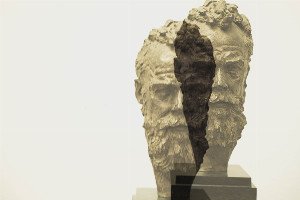Ika Ika, Khoirun Nisa, Ivan Ilham Riyandi , Fani Laffanillah
Pendidikan Holistik dalam Merangkul Spiritualitas dan Pengetahuan Empiris
Introduction
Pendidikan holistik dalam merangkul spiritualitas dan pengetahuan empiris. Jelajahi pendidikan holistik yang mengintegrasikan spiritualitas dan pengetahuan empiris. Artikel ini membahas kesejahteraan spiritual, epistemologi, dan hubungan mendalam antara pengetahuan serta kebenaran.
Abstract
Spiritual well-being in psychology is used to discuss the process of achieving spiritual conditions in individuals. Spiritual well-being is a concept regarding an innate state, has elements of motivation or drive to find the purpose of one's life, is dynamic and subjective in nature, and focuses on a certain uniqueness which is then believed to be the truth. One way to improve spiritual well-being is through dhikr activities, which are usually used as one of the psychotherapies in Islam. Epistemology as a branch of philosophy determines the character of knowledge, even determining the truths that are considered worthy of being accepted, and which ones should be rejected. Therefore, there are a number of questions that are usually asked to examine the issues in epistemology, namely what is knowledge, what are the sources and bases of knowledge? Is this knowledge a definite truth or just a guess? To answer all questions regarding the epistemology of knowledge, this article will examine in more depth the theories of knowledge and truth in epistemology. The method used in writing this article is a literature study. After presenting several explanations from various literature sources, it can be concluded that it is almost impossible to talk about "knowledge" without considering things about "truth".
Review
This paper presents an ambitious title, "Pendidikan Holistik dalam Merangkul Spiritualitas dan Pengetahuan Empiris," hinting at a crucial integration of spiritual and empirical dimensions within an educational framework. The abstract introduces two highly relevant and significant areas: spiritual well-being, specifically through the lens of Islamic psychotherapy (dhikr), and epistemology, exploring the nature and truth of knowledge. The initial exploration of spiritual well-being, defining its components and potential enhancement through practices like dhikr, is a commendable starting point, as is the recognition of epistemology's fundamental role in shaping our understanding of knowledge and truth. However, the primary challenge of this abstract lies in the significant disconnect between its grand title and the actual content outlined. While the title promises an integrated discussion on "Holistic Education" embracing "Spirituality" and "Empirical Knowledge," the abstract's content presents two largely separate discussions: one on spiritual well-being and dhikr, and another on general epistemological theories of knowledge and truth. There is a noticeable absence of any explicit connection explaining *how* these two distinct components (Islamic spiritual practices and philosophical epistemology) contribute to, or are synthesized within, the promised framework of "Holistic Education." The abstract concludes with a rather generic epistemological statement that, while true, does not bridge the specific themes introduced or advance the article's purported aim of integrating spirituality and empirical knowledge within a holistic educational paradigm. To strengthen this paper, the authors must explicitly articulate the central argument and the integrative mechanism. A revised abstract should clearly state the research question linking holistic education with spirituality and empirical knowledge. It needs to demonstrate *how* spiritual well-being (and specifically dhikr) interacts with, or informs, the acquisition and validation of empirical knowledge within a holistic educational context. Furthermore, the role of "empirical knowledge" needs to be more clearly defined and distinguished within the epistemological discussion. Without a clear framework for integrating these disparate yet important concepts, the article risks being perceived as two distinct literature reviews rather than a cohesive contribution to the understanding of holistic education.
Full Text
You need to be logged in to view the full text and Download file of this article - Pendidikan Holistik dalam Merangkul Spiritualitas dan Pengetahuan Empiris from Concept: Journal of Social Humanities and Education .
Login to View Full Text And DownloadComments
You need to be logged in to post a comment.
Top Blogs by Rating
The Unspoken Wisdom: Embracing...
By Sciaria
The Brain's Masterpiece: How Y...
By Sciaria
The Material Renaissance: How...
By Sciaria
Favorite Blog
Unmasking The Evaluation Illus...
By Sciaria
Unseen Engineers: Nanotech's B...
By Sciaria
Unlocking the Micro-World: The...
By Sciaria





